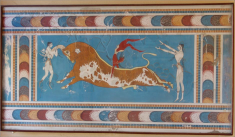Speaker
Description
In the macroscopic limit, quantum mechanics reproduces the deterministic laws of motion associated with classical physics. Nevertheless it is impossible to reconcile the uncertainty limited statistics of quantum dynamics with the classical notion of causality as expressed by universal laws of motion. Here, I explain how the complex phases of Hilbert space describe a causality dominated by the action of transformations that describe the various effects of external forces associated with quantum measurement and quantum state preparation. It is shown that quantum randomness emerges as a result of universal causality relations which include the relation between objects and the macroscopic means of control. Importantly, this kind of randomness cannot be explained in terms of incomplete information about hypothetical elements of reality residing in the quantum object because any meaningful definition of such realities would require a specific causal connection with the means of observation and control. However, quantum mechanics already provides a complete description of all possible causal connections based on an exchange of quantum coherence in interactions that tend to entangle the object with its observable effects in the outside world. As a result, there is no good motivation for the redundant introduction of elements of reality independent of the laws of causality that provide the only scientifically valid method by which a physical object can be known.




